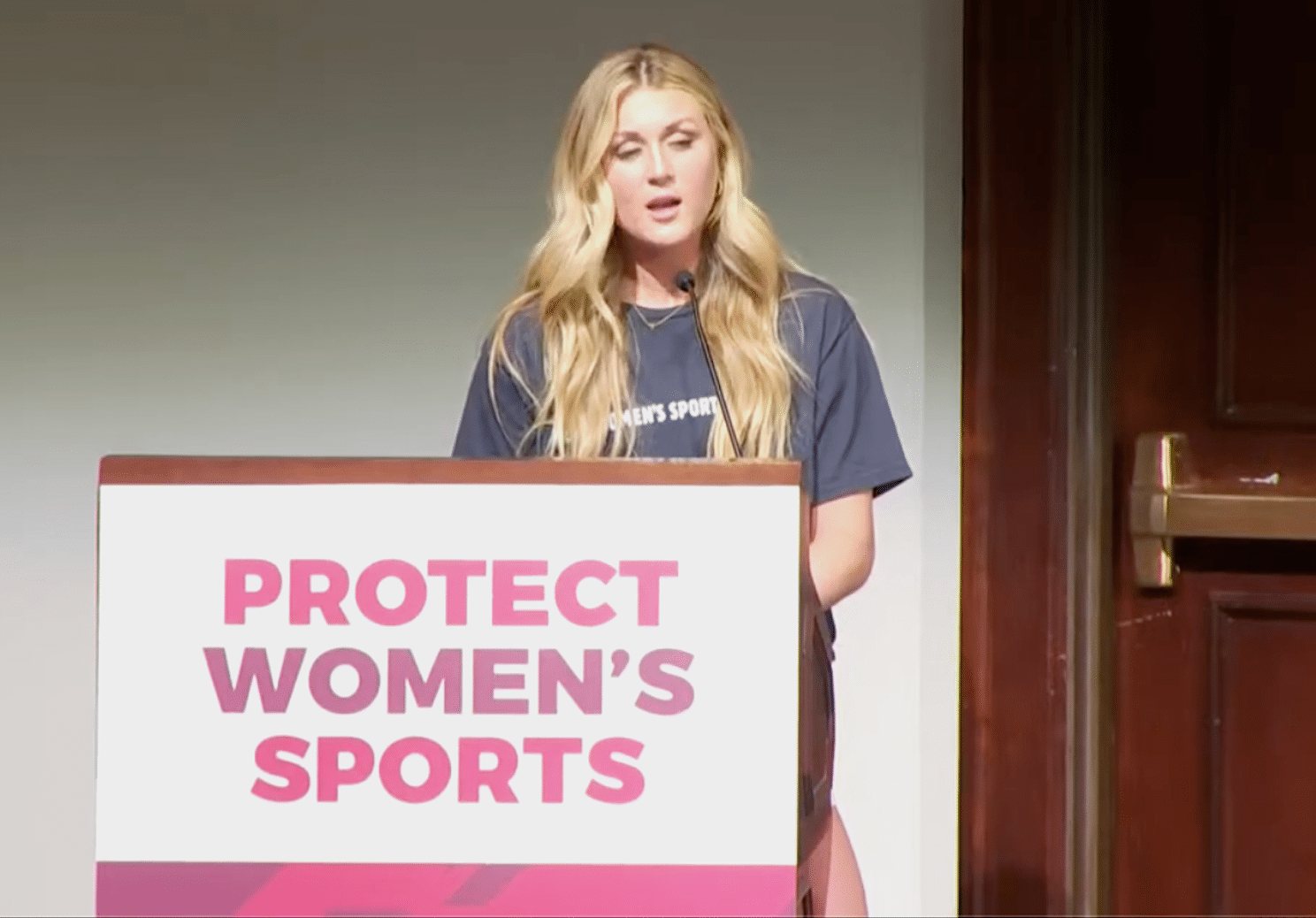A group of 16 female student-athletes filed a class-action lawsuit against the NCAA to the U.S. District Court, Northern District of Georgia Thursday in regards to the NCAA’s transgender student-athlete inclusion policies and regulations. The suit seeks a total ban of transgender women in all NCAA sports, and also demands that all titles and positions won by transgender women are retroactively revoked.
The suit was organized by the Independent Council on Women’s Sports, who also have ties to a number of conservative anti-trans organizations. At the top of list of athletes who are part of the suit is former University of Kentucky swimmer-turned anti-trans activist Riley Gaines.
Since tying for fifth place in the 200-yard freestyle event with former University of Pennsylvania swimmer Lia Thomas at the NCAA Division I Swimming Championships in 2022, Gaines has become a face of this issue. Thomas, who became first transgender woman student-athlete to win an individual NCAA Division I title during those championships, has been the centerpiece of opposing concerns about the NCAA policy.
The filing itself mirrored several of Gaines’ speeches, and some of the accusations she has personally made against Lia Thomas over the last two years. “The NCAA imposed a radical anti-woman agenda on college sports,” the filing states. “Reinterpreting Title IX to define women as a testosterone level, permitting men to compete on women’s teams, and destroying female safe spaces in women’s locker rooms.”
Get off the sidelines and into the game
Our weekly newsletter is packed with everything from locker room chatter to pressing LGBTQ sports issues.

ICONS Co-Founder Marshi Smith said, via statement, the lawsuit is “a fight for the very essence of women’s sports. We’re standing up for justice and the rights of female athletes to compete on a level playing field.”
Other contentions in the filing sought to link this issue to other issues that have been put forth by a number of conservative lobbies and conservative lawmakers.
“The NCAA has aligned with the most radical elements of the so called diversity, equity, and inclusion agenda on college campuses, facilitating the NCAA’s effort to shore up its flagging on campus approval ratings furtherance of the NCAA’s relentless drive to monetize collegiate sport,” the filing continues. “The NCAA in coordination with its member institutions, including public colleges and universities, has sought to suppress the speech of female athletes by exerting pressure on them and all who resist to enforce a Code of Silence.”
Plaintiffs include various college student-athletes
Other plaintiffs in the suit include former Virginia Tech swimmer Réka György. She was 17th in the 500-yard freestyle event at the 2022 NCAA Championships. She claims that Lia Thomas, who won the national championship in that same event, unfairly kept her out of the consolation final.
“That final spot was taken away from me because of the NCAA’s decision to let someone who is not a biological female compete,” György stated in a letter to the NCAA in March 2022 that was reprinted in the filing, “It hurts me, my team and other women in the pool.”
A group of 6 swimmers from Roanoke College (Va.) also signed on. Prior to the start of the 2023-2024 season, a number of members of their team staged a public demonstration, with Gaines in attendance, after a prospective trans women student-athlete petitioned join the team. The student withdrew their request prior to the demonstration.
The NCAA hasn’t responded publicly, but this lawsuit comes with further changes in the NCAA policy ahead. In the 2024-2025 academic year, each NCAA sport will cede to the policies set by either their respective national or world governing bodies to decide the eligibility of transgender women. In the cases of swimming and track and field, transgender women will be banned from competition in women’s NCAA sports because that is the policies of World Aquatics and World Athletics.








































